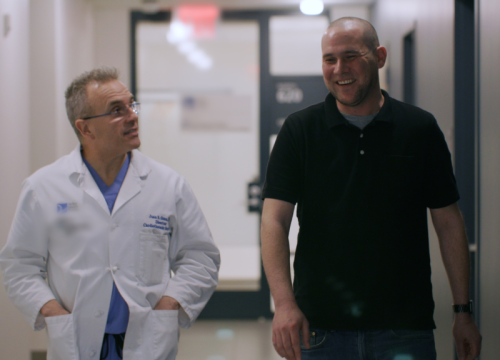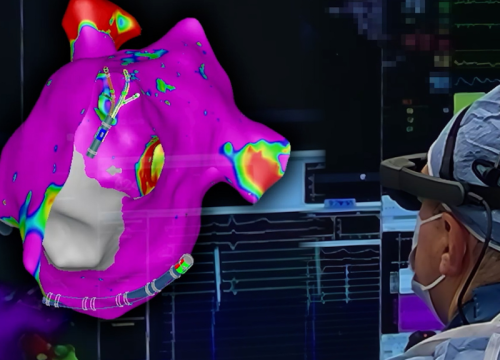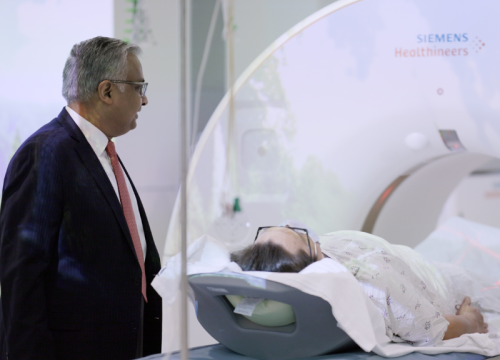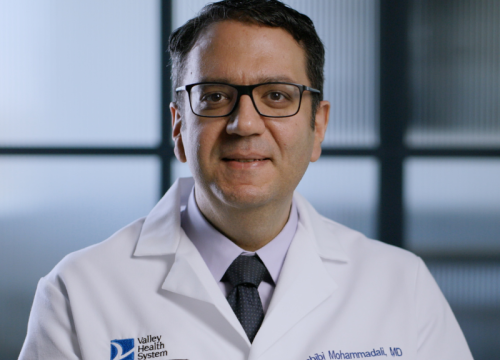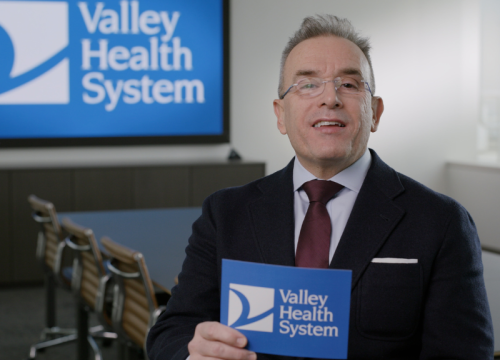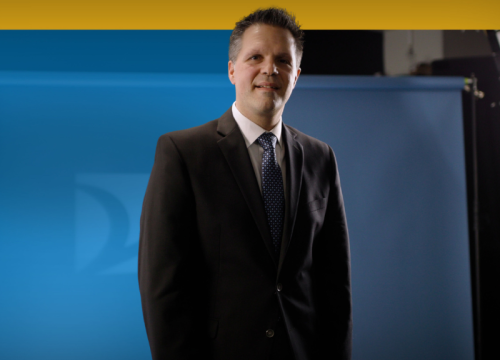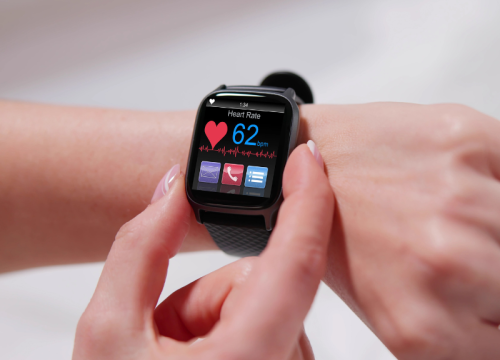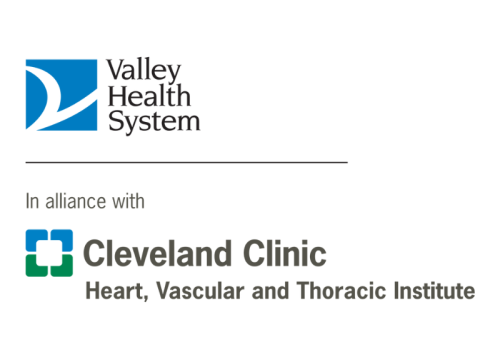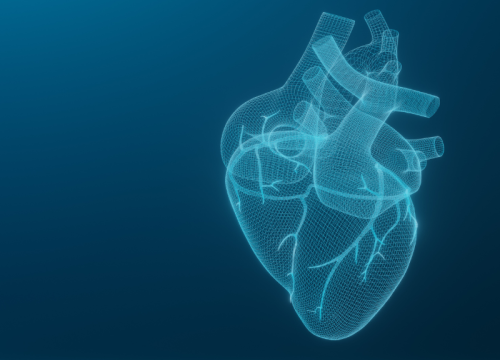Valley’s cardiac imaging program specializes in nuclear heart tests to assess your heart function. These tests help us get to the root of your symptoms and diagnose conditions like coronary artery disease.
We offer the full range of nuclear heart tests, including:
- Nuclear stress test
- Single photon emission computed tomography (SPECT) imaging
- Positive emission tomography/computed tomography (PET/CT) imaging
- PYP scan for cardiac amyloidosis
After your test, we’ll help you understand your test results. And our imaging team will collaborate with other heart experts at Valley to use your test results to guide your care plan.
What is a Nuclear Heart Test?
A nuclear heart test is a noninvasive imaging procedure. It involves using radioactive tracers that show how your heart is working.
At Valley, we use nuclear heart tests to:
- Measure the extent of blocked arteries
- Evaluate damage after a heart attack
- Determine the right treatment for your heart condition
What to Expect During a Nuclear Heart Test
- During cardiac nuclear imaging, you will lie on a table.
- The technician will give you the radioactive material through an IV.
- You will wait about 20 to 30 minutes for the material to “uptake” in the heart.
- Your technician will then move you into a donut-shaped imaging machine to get images of your heart.
- During the test, the radioactive material will be visible in areas that have good blood flow. And areas of concern will be dark.
Types of Nuclear Heart Tests at Valley
Valley offers advanced nuclear heart tests using the latest equipment and technology.
Nuclear Stress Test
A nuclear stress test is also called a cardiac SPECT (single photon emission/computed tomography) imaging test. It’s also sometimes referred to as a myocardial SPECT or SPECT MPI.
This test can be done at rest or after exercise. And it can show any changes in blood flow and heart function after exercise.
During a nuclear stress test, you will have a heart nuclear imaging test at rest.
Then, you will walk on a treadmill until your heart rate gets up to a certain point. This usually takes about 15 minutes. You will then have a second nuclear imaging test.
If you can’t use the treadmill, we offer medicines to increase your heart rate like exercise does.
The test takes two to four hours.
The test can:
- Detect problems with blood flow through the coronary arteries
- Identify damage to the heart muscle
- Assess how the heart muscle is working
Cardiac PET/CT (Positron Emission Tomography/Computed Tomography)
Cardiac PET/CT (positron emission tomography/computed tomography) imaging is sometimes called a myocardial PET/CT or PET/CT MPI.
Before your test, one of our nuclear imaging team members may call you to give you instructions. This could include following certain dietary restrictions for 24 to 48 hours before the test.
The cardiac PET/CT test takes one to three hours. The test creates 3D images of your heart. We use this test to help make decisions about your care and the effectiveness of certain treatments and procedures.
The test can:
- Assess the damage to the heart muscle due to blockages of arteries
- Assess inflammation of the heart muscle, such as sarcoidosis
Why Choose Valley for Heart Nuclear Testing?
- Expertise and experience you can trust: The director of Valley’s cardiac imaging program is a cardiologist with advanced credentials in nuclear cardiology, cardiac CT, cardiac MRI and echocardiography. With this level expertise, our cardiac imaging team plays an important role in personalizing your care plan. They work with other heart care specialists at Valley to ensure that your distinct test results guide your overall care.
- Comprehensive cardiac imaging: Valley’s cardiac imaging program offers the most advanced imaging tests available to get to the root of your symptoms. We offer other types of cardiac imaging, like cardiac MRI. This helps us get a comprehensive picture of your heart health. And this, ultimately, allows us to determine the best treatment plan specific to you.
- Advanced technologies: In addition to nuclear stress tests, Valley offers CT coronary angiogram to diagnose and stage heart disease. We also incorporate artificial intelligence and machine learning with our cardiac CT tests. This gives us the most accurate view of your overall heart health.
- Convenient imaging locations: Valley makes it as easy as possible for you to get the cardiac imaging you need. We offer nuclear heart tests at several locations. Our team will work with you to schedule your test in a timely manner.



